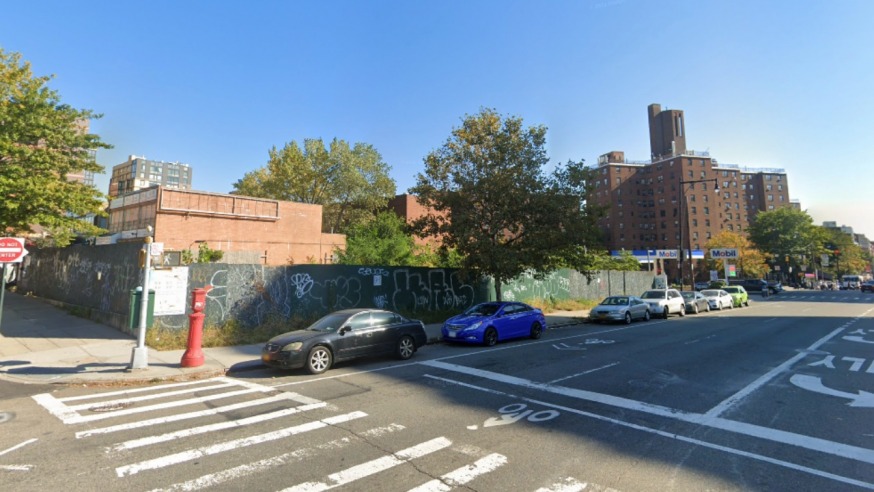
A rendering of the proposed transitional housing development planned to go up at 39-03 College Point Blvd. (L) and Queens Council Member Sandra Ung (Rendering provided by Urban Architectural Initiatives. Image via Twitter @CMSandraUng)
March 23, 2022 By Michael Dorgan
Several Flushing civic groups that aim to stop the development of a homeless facility on College Point Boulevard have found an ally in Council Member Sandra Ung.
The Flushing lawmaker is calling on the city to find ways in which the vacant site can be developed for affordable housing– instead of a site for transitional housing.
The empty site, located at 39-03 College Point Blvd., has been a source of controversy since building permits were filed last year for the development of a 90-unit transitional housing facility. The development, which would be seven stories, would consist of supportive housing units—providing temporary apartments to homeless families to help transition them back into long-term housing.
The Dept. of Homeless Services (DHS) is planning to develop the project with the non-profit group Asian Americans for Equality (AAFE), a Manhattan-based organization that provides transitional housing as well as affordable housing for Asian Americans and various disadvantaged communities.
The proposal has faced stiff opposition from residents and local leaders who say they do not want the facility to be built. A petition to block the development – which is expected to cost around $440 million — has garnered more than 60,000 signatures in opposition. The proposal is currently on pause.
On Monday, Ung penned a letter to Adolfo Carrión, the Commissioner of Housing Preservation and Development (DHS), requesting he provide details as to what sort of affordable housing projects could be built at the site.
Her letter was prompted by local civic groups who have been outspoken in their opposition to the construction of transitional housing—favoring affordable housing instead.
The AAFE did an evaluation of the site and determined that affordable housing is not financially feasible for the site and therefore have opted to move forward with transitional housing instead.
“AAFE conducted an internal review of available city-administered housing programs and financing streams, and found with the options available, there would be a funding gap that makes developing affordable housing unrealistic,” Ung wrote.
Ung asked Carrión to outline what government-administered programs, financing or grants are available to the AAFE to develop affordable housing at the site instead of the homeless housing proposal.
The AAFE, according to Ung, also said that it could only develop 54 affordable housing units at the site under current zoning laws and that a project of such size would not qualify for the usual funding sources available to developers of affordable housing.
“If this is in fact true, what size development would be necessary for a developer to qualify [for] city, state, or federal programs and financing?” Ung wrote.
Ung also said she would support a zoning change to the site, should it result in more affordable housing units being built on it.
“If a rezoning of the property to allow some increase in density would make affordable housing possible, given the community’s desire for that type of project over transitional housing, my office would support a zoning change and help move the proposal through the ULURP process,” Ung wrote.

The development is planned to go up at 39-03 College Point Boulevard, pictured. (Google Maps)
She appealed to Carrión to provide the requested information for transparency. Ung said that a lack of information surrounding the site is creating confusion and distrust among community members.
Representatives of local community groups say that they don’t have confidence in the city to stick to the current plan of providing temporary apartments to homeless families.
They point to the city’s use of the nearby Wyndham Gardens Fresh Meadows Hotel, which was set up to house recently released Rikers Island inmates for three months. The facility, they say, has been kept open for nearly two years.
Jerry Lo, the acting president of Flushing United, a group set up to block the proposed facility, said that around 60 community organizations have joined his group’s efforts to block the current proposal. Flushing United also established the petition.
The current proposal, however, does have the support of advocates for the homeless.
Proponents of the transitional housing development have said that the facility would provide much-need temporary accommodation for families who may have lost their homes or may have been housed in illegal basement apartments. They also note that it is not a traditional shelter.
The purpose of the units, they say, is to help families get back on their feet.






